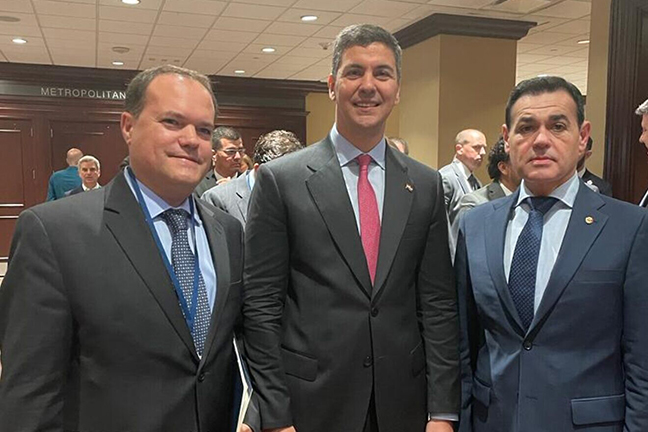Long-time Jerusalem Post writer: Israel should be grateful for Christian support
One of Israel’s best-known journalists believes that Israelis should be thankful for the growing Christian Zionist movement, which is providing the Jewish state with crucial support.
Herb Keinon, long-time diplomatic correspondent for the Jerusalem Post, said that Biblically-inspired Christians who have dedicated themselves to advocating for the Jewish state have become vital to Israel’s well-being.
Keinon offered his observations about Christian Zionism in an interview with Israel InSight magazine prior to speaking Nov. 4 to a mostly Jewish audience at Birmingham‘s Levite Jewish Community Center.
“Israel is lucky to have this kind of support,” he said. “It is not a given, for example, that the U.S. Congress always will be as supportive of Israel as it is today, and having support from so many Christian Zionists is crucial to Israel’s long-term well-being.”
The Christian Zionist movement has grown tremendously in the past 15 years. Christians United for Israel, for example, a major Christian Zionist education and advocacy group, which began with 400 members in 2006, has grown to 5 million members, according to the organization.
Keinon, an American Jew who grew up in the United States before immigrating to Israel and becoming an Israeli citizen, acknowledges that some American Jews may be “wary” of Israel’s Christian supporters.
He believes they are worried that the ultimate motive of Israel’s Christian supporters is to convert Jews to Christianity, a concern that Keinon does not share.
“In Israel the main issue for us is security — keeping our families safe — and we believe that the Christian Zionist movement, as a result of its advocacy and education on behalf of Israel, helps protect and strengthen our country,” he said.
Christian Zionists draw great meaning and inspiration from Genesis 12:3, which says God will bless those who bless Israel and curse those who curse Israel.
Keinon noted that Israel’s outreach to Christian Zionist leaders began under Israeli Prime Minister Menachem Begin in the late 1970s and early 1980s. In fact, Begin, like Christian Zionists, was Biblically-inspired himself and spoke passionately about Israel’s birthright and title to the land being embedded in the Hebrew Bible.
As Keinon noted, Begin may have been the first prime minister to embrace the Christian Zionist movement, an overture that many American Jews found perplexing at the time, but every Israeli prime minister since then has carried the relationship forward to some degree. Today, current prime minister Benjamin Netanyahu places great emphasis on Israel‘s relationship with its Christian supporters, not just in the U.S. but worldwide.
Keinon also noted that the Christian Zionist movement was an important catalyst for President Trump‘s decision to move the U.S. Embassy to Jerusalem and recognize Jerusalem as Israel’s capital.
“Christian Zionism for us is a blessing,” said the Israeli journalist.
Keinon’s byline is well-known to those who read the Israeli news media. He has worked for the Jerusalem Post for 31 years and took over the diplomatic beat in 2000. In that role, he covers Israel’s prime minister and foreign minister.
Much of his formal talk focused on why Israelis continue to overwhelmingly support Netanyahu and Trump.
Keinon stressed that this support of Netanyahu and Trump among Israelis is not a 100 percent endorsement of everything they do or say, or a defense of the controversies that surround both leaders. Rather, it is a reflection that when it comes to major issues that drive Israeli thinking, these are two leaders who enjoy widespread support among the Israeli public.
Netanyahu, who is on the verge of becoming Israel’s longest serving prime minister, is seen as a protector of the Israeli people and someone they trust to make the country safer for them and their families.
“You have to understand what it feels like to feel insecure,” the Israeli journalist said in his talk, reflecting on day-to-day life in the country. “This insecurity is real and shapes how we think about the world.”
He said 18 years ago, the outbreak of an unprecedented war of terrorism against the Israeli people by the Palestinians, after their leader Yasser Arafat rejected Israel’s unprecedented peace concessions, transformed the Israeli psyche and created a trauma that goes on to this day.
“We were mugged by reality,” Keinon said. “Terror came into the cities and affected everybody — the terrorism left a scar on the people that we have not yet gotten over.” This was a traumatic period for Israelis that instilled fear throughout society as Israel bravely faced what seemed to be a nonstop barrage of suicide bombings and other acts of terror.
Keinon also gave Netanyahu high marks for his handling of the Israeli economy, another issue that is important to the Israeli people.
Turning to Trump, Keinon stressed that “Israeli Jews are consumed by security.” Trump, in the eyes of many Israelis, has been a great and steadfast friend of their country which, Keinon says, is what drives their admiration for Trump. Appreciation for the American president is reflected in Israeli opinion polls.
“Israelis look at U.S. presidents in terms of who is best for Israel,” Keinon explained, observing that Trump has earned high marks in three key areas.
The first is “changing the conversation about Israel” and creating a much more positive tone in U.S.-Israel relations, and not “airing disagreements in public.” Additionally, as part of this change, the Israeli journalist noted that Trump has surrounded himself with influential advisors “who like, understand and support Israel.”
The second area involving Trump is his withdrawal from the Iranian nuclear accord and the new economic and political pressures that he has put on the Iranian regime. “This has had tremendous implications in thwarting Iran and it is now a different ballgame,” said Keinon. “Trump has put the Iranians on the defensive.”
The third area, which Keinon described as “major for Israel,” is the moving of the U.S. Embassy to Jerusalem and recognizing Jerusalem as Israel’s capital. “Symbols matter,” he said, “and also by moving the embassy, Trump sent a message to the Palestinians that there is a price for continued rejection of Israel and unwillingness to negotiate.”
“As a whole,” he said, “Trump has been extremely good for Israel.”



